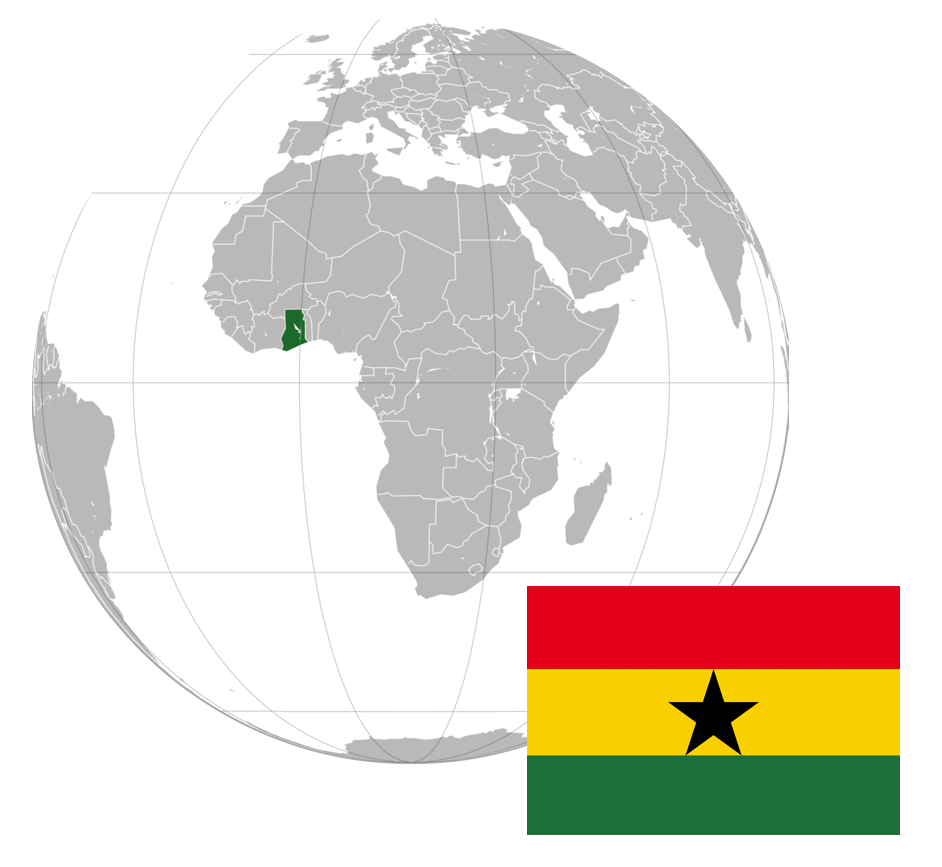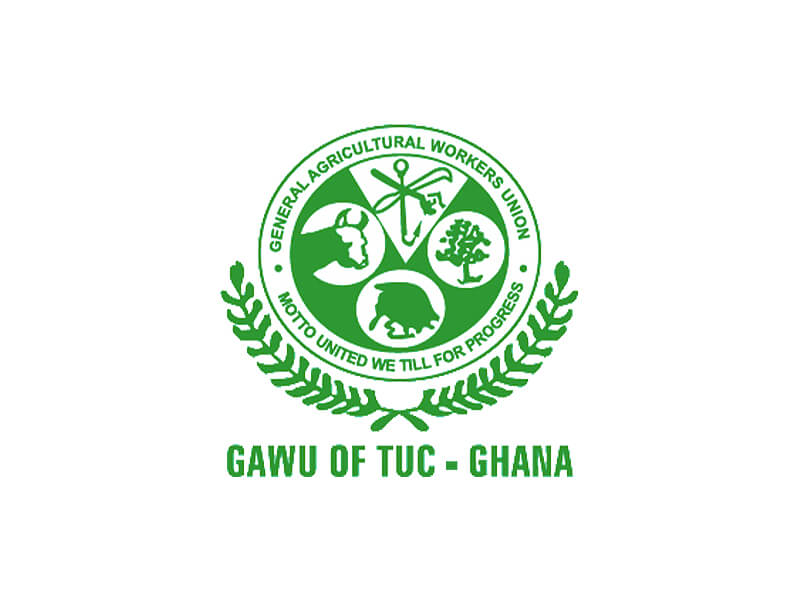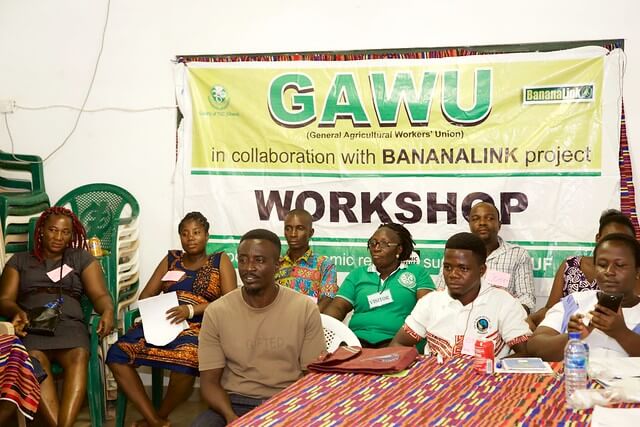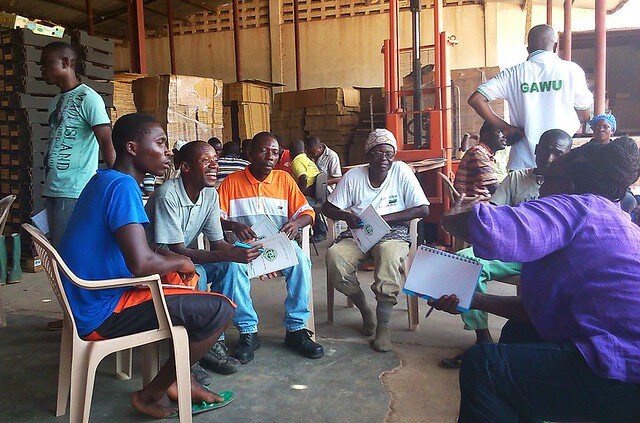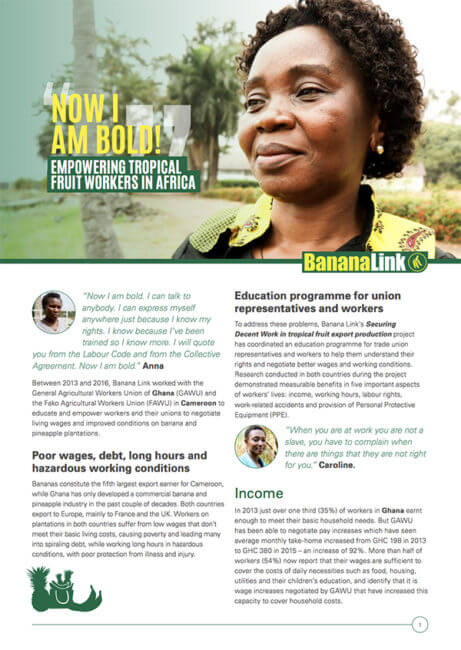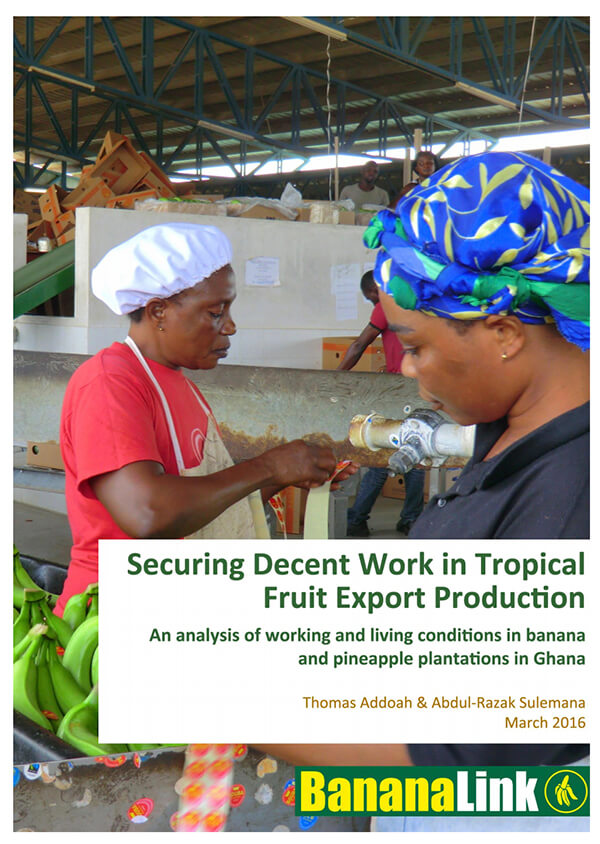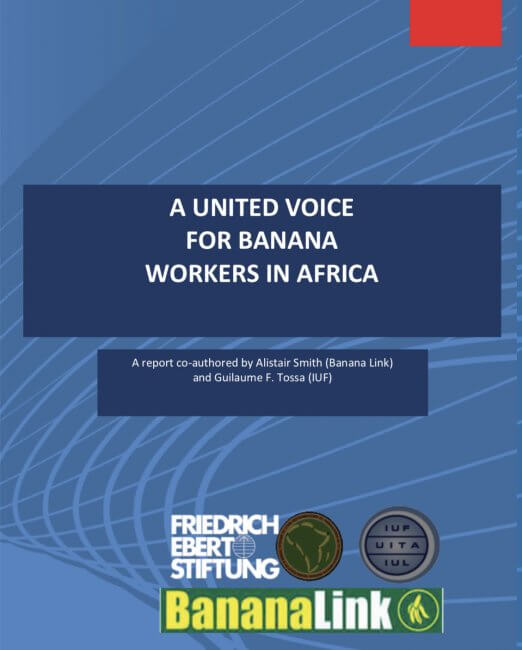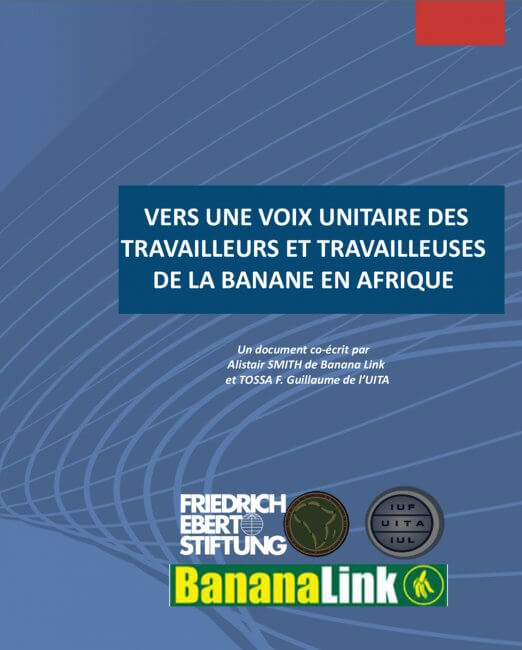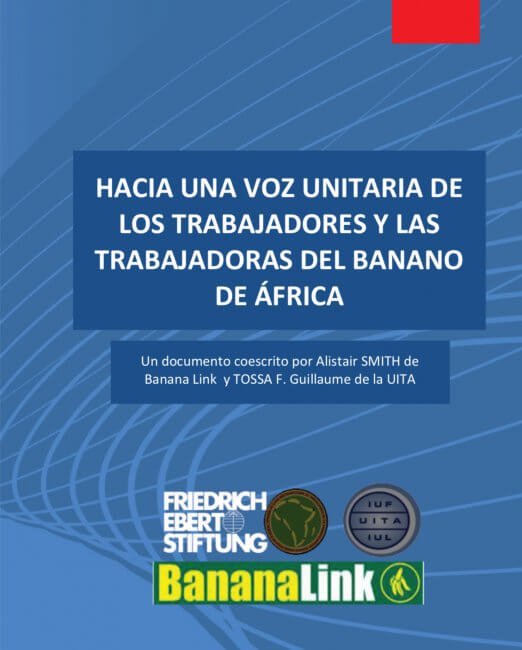The International Union of Food workers (IUF), with the support of Banana Link, successfully facilitated the launch of the African Network of Women and Men Banana Workers in 2013 at Limbé in Cameroon. With valuable support from the German Friedrick Ebert Foundation, the fifth annual workshop brought together representatives from sixteen trade unions working in eight companies across Côte d’Ivoire, Cameroon and Ghana, bridging the francophone-anglophone linguistic divide.
Themes of the Meeting
The theme of building good industrial relations and improving working conditions was central to the meeting, with reports from union leaders and women’s committees on advances made in all three countries, particularly in building unitary trade union platforms where several unions operate within a single company.
World Banana Forum
The first ever participation of an African workers’ delegation at a global conference of the World Banana Forum was hailed as a historic step forward, with important interventions on a wide range of subjects from the delegates to the conference in late 2017 in Geneva. The Network decided to propose to host the fourth global conference on the African continent.
Building Social Dialogue
A multi-stakeholder round table saw representatives of two major banana companies from Côte d’Ivoire and of the Ministries of Labour and Agriculture contribute to the debate over how to continue building social dialogue and collective bargaining in the African industry.
The topic of the minimum agricultural wage in Côte d’Ivoire, which is barely one third of the level of the national minimum wage for all other sectors, provided a hot subject of debate. Participants agreed that this outdated dual-track remuneration system needs urgent attention, particularly in an industry which can afford to – and many cases does – pay well above the agricultural minimum.
However, wages in both the Ivorian and Cameroonian industries, especially for field workers in some companies, remain obstinately low, as testimonies from participants revealed. Housing allowances in Cameroon are far from covering the cost of renting decent accommodation, for example, whilst very low take-home wages in some companies in the fast-growing industry in Côte d’Ivoire have provoked industrial unrest in recent weeks.
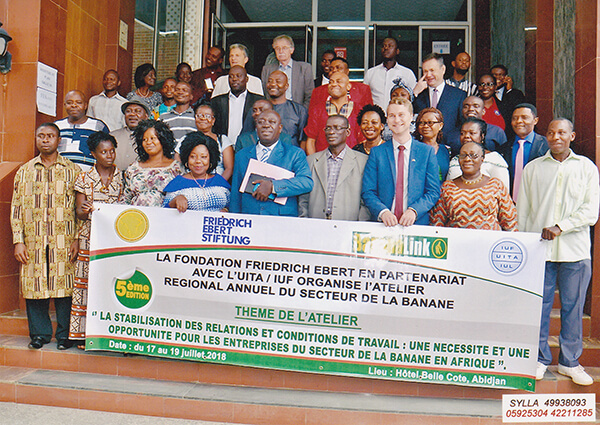
Strategies For Implementation
Calls for living wage benchmarks for the two countries were made, as a basis on which to build national strategies for implementation. In Ghana, where a living wage benchmark was set last year, trade unions will meet with Fairtrade and World Banana Forum representatives to discuss strategies for closing the gap between the lowest actual wage levels and the living wage level established for the banana industry in that country.
Reports from the women’s committee representatives revealed that, although the unions have developed their capacity in this area, there is still a deficit in some companies, where much more support is needed to make a difference on issues which have not been addressed adequately in the past.
A United Voice
The African banana industry has increased significantly in the last decade, with some African countries now in the top ten global banana exporters. However, this growth paired with the outdated and unjust agricultural legislation has created an industry in which workers do not have sufficient rights and conditions. Workers are suffering through unrealistic minimum wage, prohibitions of union activity and human rights violations in some cases. Borders and language barriers have prevented the unification of trade unions across Africa and Cameroon, but platforms are now being created to encourage communication. Banana Link’s Policy & Communications Officer, Paul Lievens, takes a look at a recent report published jointly by Banana Link and the International Union of Foodworkers (IUF) examining the situation of banana workers in Africa and the necessity of a united voice.
Blog: Towards a united voice for banana workers in Africa
